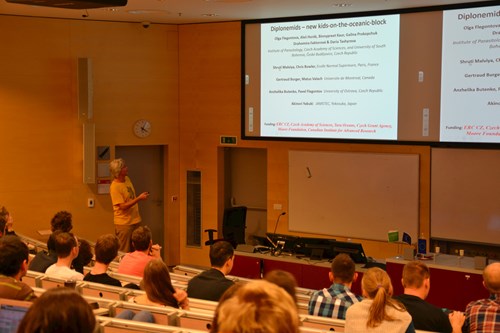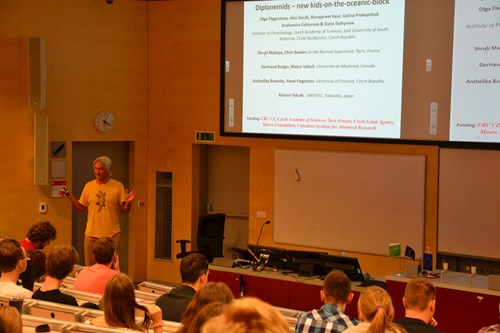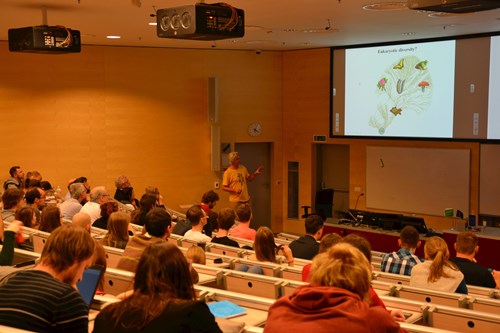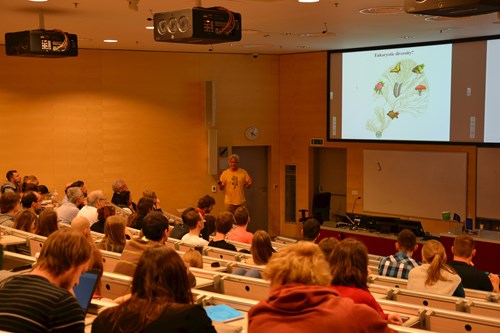Prof. Julius Lukeš
Institute of Parasitology, Biology Centre CAS, Czech Republic
- Our primary interest is functional analysis of selected mitochondrial proteins of the kinetoplastid Trypanosoma brucei. Its mitochondrion is unique in many aspects and by knocking-down or knocking-in individual genes, we are trying to establish their functions. We have focused on (i) proteins involved in RNA editing and regulation of stability of mitochondrial transcripts, (ii) subunits of respiratory complexes, (iii) iron/sulfur cluster assembly proteins, (iv) prohibitin. We are also interested in the evolution and biodiversity of parasitic kinetoplastid flagellates, as well as involved in the genotyping of European leishmaniases and designing new diagnostic approaches for their detection. Moreover, we are trying to improve a new expression system in Leishmania tarentolae.
- Laboratory webpage: http://www.paru.cas.cz/en/sections/molecular-parasitology/laboratory-of-molecular-biology-of-protists/



